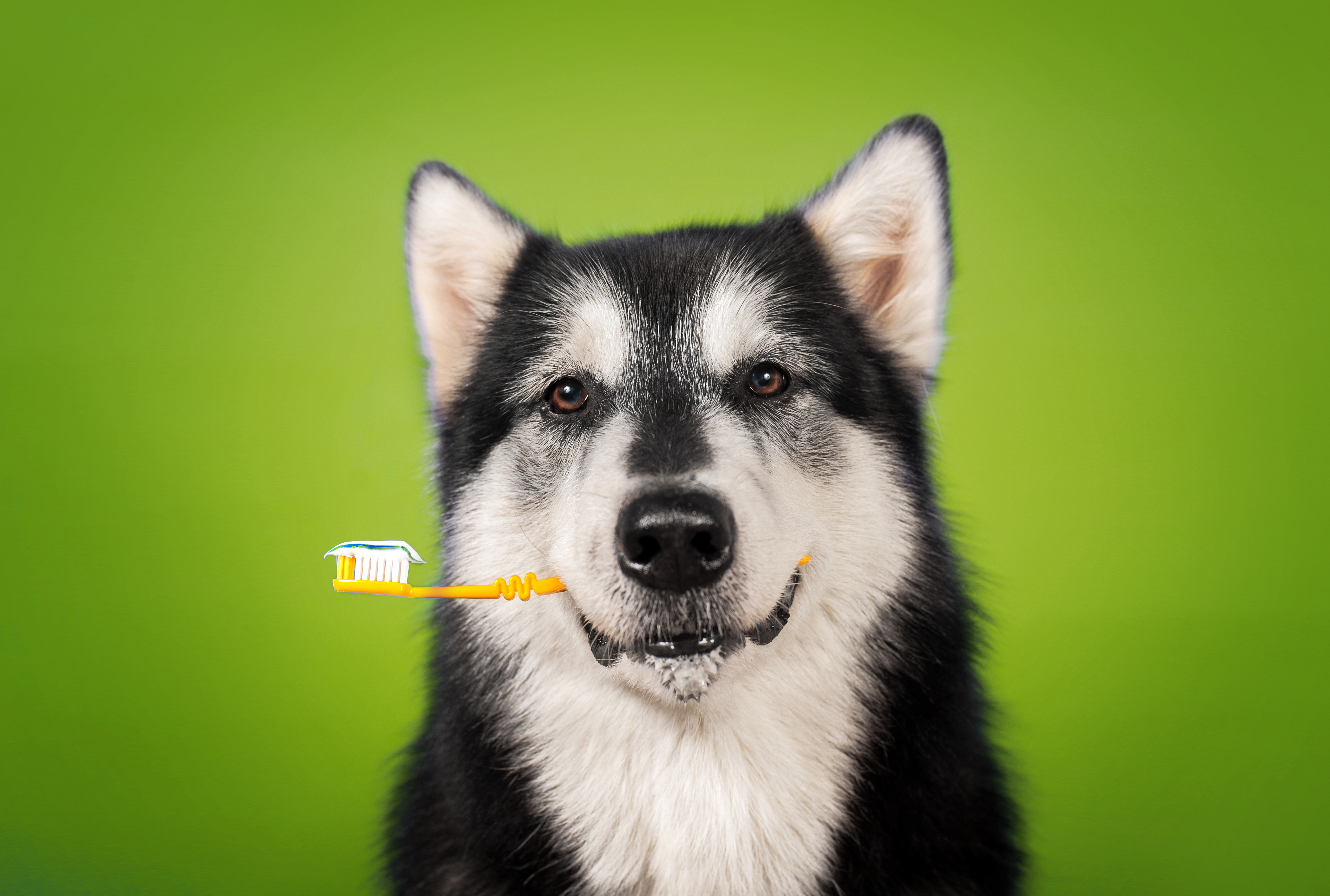By Erica Laceria on Aug 25, 2020 @ 11:13 AM
Dog owners are always looking for ways to keep their dogs happy and healthy. But many owners tend to overlook the importance of oral health. Tartar and gingivitis are two of the most common problems seen in dogs by veterinarians. In fact, 80 percent of dogs show signs of oral and dental disease by the age of three. If not properly cared for, these diseases can lead to serious health problems. Below are oral health tips to help keep your four-legged friend's teeth strong.
Bad breath is one of the first signs of dental problems. The most common cause of bad breath is a build-up of bacteria on your dog’s teeth, called plaque. If plaque isn’t removed properly, it can cause irritation and inflammation of the gums, which are the first signs of gum disease. Here's how you can treat your dog's bad breath:
1. Brushing Your Dog's Teeth
Brushing your dog's teeth is an excellent way to prevent or get rid of plaque buildup. When introducing brushing to your dog, make it a pleasant experience and start with a finger brush or dog tooth wipes. As they grow comfortable with the experience, start to use a dog toothbrush. To know which toothbrush is best suited for your dog, consult with your veterinarian. Making brushing a daily activity will help your dog stay calm through the process, and it will keep them in good oral health.
2. Proper Diet and Dog Chews
Just like us humans, what we eat affects our smile. Sugary snacks are a big no-no and certain table scraps can not only harm your dog's oral health, but also their overall health. There are some great bones and chew toys that can improve your dog's gums and teeth. The gnawing scrapes plaque off your dog’s teeth, and all-natural chews made from meat contain enzymes that help promote dental health. Use bones that your vet recommends, and replace them when they get small enough for your dog to swallow. Also, consider looking into vitamin supplements for your canine pal - they can be a great way to boost your pooch's oral and overall health. Make sure to always supervise your dog when chewing bones or supplements to prevent possible choking.
3. Professional Cleanings
If your dog is struggling to eat their food or their bad breath still remains after attempting the other tips mentioned, then they probably need professional care. Your vet knows what’s best for your dog’s teeth and will be able to address and treat any issues they find. Talk to your vet about annual or semiannual teeth cleanings. A teeth cleaning is the best way to remove tartar build up.
If you stay on top of your dog's dental health by paying attention you are already a step ahead of any major issues that may arise. Of course, if something doesn't look or feel right, ask your veterinarian. Better to be safe than sorry when it comes to your furry friends!





comments